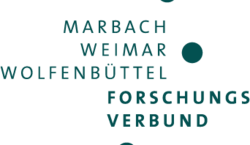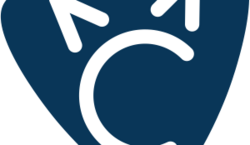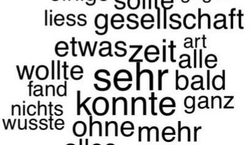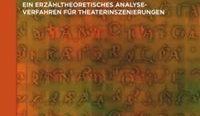Research and talks
On this page I present selected research projects and publications in more detail. Below you will also find a list of my academic talks.
Digital Humanities Lab (DH Lab)
The DH Lab is an interdisciplinary networking platform in the field of Digital Humanities at the University of Hamburg (UHH), Germany. The open workshop zone in the Humanities Library offers staff and students space for discussions, readings and collaborative work.
Since 2025 I am head of the DH Lab at UHH.

Service Center for Digital Humanities (SCDH)
Digital Humanities (DH) is what everyone is talking about. It makes research possible that would otherwise not exist. In practice, however, good ideas often get stuck due to a lack of expertise in their implementation. Within the framework of the DH structure at Münster University, researchers therefore work together with IT developers on concrete solutions for ideas and projects and thus advance the digital transformation of academic practice.
I was the head of the SCDH from 2021 to 2025.

Research Association Marbach Weimar Wolfenbüttel (MWW)
The German Literature Archive Marbach, the Klassik Stiftung Weimar and the Herzog August Bibliothek Wolfenbüttel founded the MWW research association in 2013 on the recommendation of the German Science and Humanities Council. Research in MWW takes place within the framework of the Digital Humanities to develop new, model solutions for collection research and indexing.
From 2020 to 2021, I was the managing director of the research network and headed the Digital Lab based in Weimar.

forTEXT. Investigating Literature Digitally
The platform forTEXT offers beginner-friendly citable method descriptions, text collections and tools – from digitization to annotation to interpretation and visualization of literature. You will also find materials for self-learning and for teaching at university and school.
I coordinated the DFG-funded project from 2017 to 2020 at the University of Hamburg.

CATMA
CATMA stands for Computer Assisted Text Markup and Analysis. It is a browser-based tool that digitally supports the manual annotation and analysis (including visualization) of texts. CATMA is based on the traditional (hermeneutic-cyclical) philological workflow and can be used in a very low-threshold way – even collaboratively.
In the course of the forTEXT project, we released the sixth version of CATMA in 2019.

Renunciation and Irony in Goethe
In the discussion about the status of the Digital Humanities (DH) as a scholarly discipline, the possibility of reconnecting digital techniques, methods, and theories is often brought into the field. But how exactly can digital methods of textual analysis bridge the gap to more traditional literary studies? And conversely, how can theoretically complex literary concepts be explored digitally? Rabea Kleymann's and my article uses the concrete example of "Renunciation and Irony in Goethe" to show how a combination of distant and close reading methods in the course of scalable reading can promote and connect discussions in Goethe research on the part of DH.
Jan Horstmann, Rabea Kleymann: "Alte Fragen, neue Methoden – Philologische und digitale Verfahren im Dialog. Ein Beitrag zum Forschungsdiskurs um Entsagung und Ironie bei Goethe". In: Zeitschrift für digitale Geisteswissenschaften. Wolfenbüttel 2019. text/html Format. DOI: 10.17175/2019_007

Theater Narratology
The narrative dimension has been underrepresented in theatrical performance analysis.
In order to remedy this desideratum, my dissertation (2013 to 2017) does not examine passages narrated by characters in individual performances, but rather poses the question in general: How does theater narrate? Theater Narratology thus develops for the first time, on the basis of a comprehensive theoretical foundation in relation to the research fields of classical and post-classical narratology and theater studies, a heuristic model of analysis of performative narrative that is suitable for practical application in narrative-theoretical performance analysis. The analytical categories developed make it possible to describe theatrical narrative in an intersubjectively comprehensible way and to place it in narratological terms not only in intertheatrical but also in intermedial contexts. Performativity and narrativity are thought of together and not as opposites, giving the possibility of a rapprochement of theatrical and narratological research.
The book Theaternarratologie. Ein erzähltheoretisches Analyseverfahren für Theaterinszenierungen was published as volume 64 of the Narratologia series at de Gruyter. DOI: 10.1515/9783110597868
Talks
| 11/2025 | „Digital Humanities (DH) in der Lehre", Workshop Asien Afrika Institut | Universität Hamburg |
| 03/2025 | „Alles hat seine Zeit: Generische Softwareentwicklung und individuelle Projektanforderungen“, DHd-Konferenz 2025 (DOI) | Universität Bielefeld |
| 03/2025 | „Anno 2025. Das Annotationsspiel für große und kleine Forschende“, Posterslam DHd-Konferenz 2025 (DOI) (awarded 1. place at poster slam) | Universität Bielefeld |
| 04/2024 | „Intertextualität im Semantic Web. Eine Chance für die (Digitale) Literaturwissenschaft" | Universität Wien |
| 02/2024 | „’Roads? Where we’re going, we don't need roads.’ Die Zukunft des Publizierens", Posterslam DHd-Konferenz 2024 (DOI) (awarded 2. place at poster slam) | Universität Passau |
| 02/2024 | „Intertextor: Interfaces für die Annotation intertextueller Relationen", Posterslam DHd-Konferenz 2024 (DOI) | Universität Passau |
| 02/2024 | „Von Menschen und Maschinen: Transdisziplinäre Workflows im Münsteraner Editionsprojekt Heinrich Scholz", DHd-Konferenz 2024 (DOI) | Universität Passau |
| 01/2024 | „Produktive Reibungsflächen: Geisteswissenschaften und Datenvisualisierung", Coffee Lecture: Digital Humanities – wie geht das? (URL) | Universität Hamburg |
| 12/2023 | „Kollaboration als Notwendigkeit: Institutionelle Unterstützung für die Forschung in den Digital Humanities", DH-Tag 2023 (DOI) | Universität Münster |
| 11/2023 | „Digital Humanities an der Universität Münster" | Universität Osnabrück |
| 09/2023 | „Digital Humanities – Eine Brücke zwischen Geisteswissenschaften und Informatik", Podcast Neues aus der Alten Welt | Universität Münster |
| 07/2023 | „Collaboration as Necessity: Institutional Support for Digital Humanities Research", DH Conference 2023 | Universität Graz |
| 06/2023 | „Collaboration as Necessity: Institutional Support for Digital Humanities Research", DH-Kolloquium | Universität Köln |
| 03/2023 | „Textliche Relationen maschinenlesbar formalisieren: Systeme der Intertextualität", DHd-Konferenz 2023 (DOI) | Universität Trier |
| 03/2023 | „Grenzen der Offenheit: eine digitale Sammlung zur Erforschung historischer Arzneimittelrezepte", DHd-Konferenz 2023 (DOI) | Universität Trier |
| 01/2023 | „Visualisierungen kritisieren: Kriterien der Visual Literacy für die Digital Humanities", MKWie? Resilienz-Workshop | Universität Freiburg |
| 09/2022 | Keynote: „Digitale Tools in geisteswissenschaftlicher Forschung – Textanalyse, Interpretation und Visualisierung", Conference Von Daten zu Wissen (Program) | HAB Wolfenbüttel |
| 09/2022 | „Embedded Digital Humanities. Ein methodenbasierter Brückenbau zwischen nicht-digitalen und Digitalen Literaturwissenschaften" | LMU München |
| 04/2022 | „Digital Humanities an der WWU", Galerievortrag Universitäts- und Landesbibliothek | Universität Münster |
| 03/2022 | „Druckst du noch? Visionen und Bastionen des (digitalen) Publizierens in den Geisteswissenschaften", Panel Discussion Digitales Publizieren und die Qualitätsfrage. Wege für Open Access in den Geisteswissenschaften | Universität Duisburg-Essen |
| 03/2022 | „Digital Humanities", eScience-Tag 2022; DOI: 10.5281/zenodo.6420875 | Universität Münster |
| 03/2022 | „Medienübergreifende narratologische Analysekategorien: Didaktik der Erzähltheorie zwischen Schule und Wissenschaft", Tagung: Erzähltheorie(n) und Literaturunterricht | Universität Münster |
| 03/2022 | „Visualization and Visual Literacy in the Humanities", Community of Practice „Data Literacy" (DL) | Universität Bielefeld |
| 03/2022 | „Erinnern durch Vernetzen", Panel discussion DHd-Konferenz 2022 | Universität Potsdam |
| 02/2022 | „Taxonomiebasierte Annotation und Semantic Web", Workshop: Softwaregestützte Kategorienentwicklung in Praxis und Forschung; Program and Abstract | Technische Universität Darmstadt |
| 12/2021 | „Visualisierung und Modellierung von Netzwerken und Zeitlichkeit", Exzellenzcluster Temporal Communities – Doing Literature in a Global Perspective | Freie Universität Berlin |
| 11/2021 | „Visualität, Visualisierung und Visual Literacy als Aufgabe der Geisteswissenschaften", Digital*Humanities im Gespräch; Abstract and Recording | Freie Universität Berlin |
| 08/2021 | „Digital Laboratory and Virtual Research Space", European Summer University in Digital Humanities Culture & Technology | Universität Leipzig |
| 05/2021 | „Visualisierung als Methode der (digitalen) Geisteswissenschaften" | Universität Marburg |
| 04/2021 | „An Introduction to Digital Humanities: Possibilities and Challenges” | Universität Lissabon, Portugal |
| 02/2020 | „Kollaborative Literaturwissenschaft – digitales Annotieren literarischer Texte als diskursive Aushandlung von Vermittlungs- und Verstehensprozessen“ | Universität Duisburg-Essen |
| 11/2019 | „Literatur digital erforschen: Methoden und Tools der digitalen Literaturwissenschaft” | Universität Bonn |
| 11/2019 | „Digitale und traditionelle literaturwissenschaftliche Methoden im Dialog: Dissemination von theoretischem, methodischem und praktischem Wissen“, DFG-Symposium | Universität Lüneburg |
| 11/2019 | „Erzähltheorie und Theater. Möglichkeiten der narratologischen Analyse von Inszenierungen“, Ringvorlesung Travelling Concepts. Literary Theory beyond the Scope of Literary Studies | Universität Münster |
| 06/2019 | „Visualisierung als Mittler zwischen quantitativen und qualitativen Methoden der (digitalen) Literaturwissenschaft“ | Humboldt-Universität Berlin |
| 05/2019 | „Visualisierungsformen für quantitative und qualitative Methoden in der digitalen Literaturwissenschaft“, Visualisierung in (digitalen) Editionen | Nordrhein-Westfälische Akademie der Wissenschaften und der Künste Düsseldorf |
| 03/2019 | „Social Media, YouTube und Co: Multimediale, multimodale und multicodierte Dissemination von Forschungsmethoden in forTEXT“, DHd 2019 multimedial & multimodal | Universität Frankfurt |
| 02/2019 | „Undogmatisches literaturwissenschaftliches Annotieren mit CATMA: manuell, halb-automatisch und automatisiert“, Annotationen in Edition und Forschung. Funktionsbestimmung, Differenzierung, Systematisierung | Universität Wuppertal |
| 02/2019 | „Textvisualisierung: Epistemik des Bildlichen im Digitalen“, DFG-Symposium „Wovon sprechen wir, wenn wir von Digitalisierung sprechen? Gehalte und Revisionen zentraler Begriffe des Digitalen | Universität Bayreuth |
| 12/2018 | „A Scalable Reading Approach to Goethe’s Narrative Texts: Investigating Renunciation and Irony“, EADH 2018 conference | Universität Galway, Ireland |
| 10/2018 | „Making Digital Routines, Resources, and Tools forTEXT Accessible for Humanists", Teaching English in the Era of Digital Humanities: A Multi-Disciplinary Perspective | Universität Frankfurt |
| 07/2018 | „Digital Methods to Analyze Semantic Phenomena: A Scalable Reading Approach to Goethe’s Narrative Texts“, Ocean Narratives-Workshop | Universität Kiel |
| 07/2018 | „Trauma(tizing) Narrative: Abused Trust as Content and Formal Device in Hanya Yanagihara’s Novel A Little Life (2015)“, Summer Course in Narrative Studies (SINS) | Universität Århus, Dänemark |
| 04/2018 | „The Cut in Multinarratives: Hanya Yanagihara’s A Little Life (2015)“, Narrative-Konferenz 2018 | McGill-Universität Montréal, Kanada |
| 02/2018 | „Digital vs. Humanities? Didaktische Aufbereitung digitaler Methoden für die klassischen Geisteswissenschaften im Projekt forTEXT“, DHd-Konferenz 2018 | Universität Köln |
| 12/2017 | „Von der Bedarfserhebung zur nutzerorientierten Konzeptentwicklung. Die Relevanz von Interfacedesign und Visualisierung im literaturwissenschaftlichen Interpretationsprozess", Potsdamer Arbeitstreffen zur digitalen Literaturwissenschaft No. 2 | Universität Potsdam |
| 09/2017 | „Narrative Representation and Fictionality in Performative Media“, Konferenz European Narratology Network | Universität Prag |
| 09/2017 | Panel Chair: „Drama, Theatre, and Audionarratology“, Konferenz European Narratology Network | Universität Prag |
| 08/2017 | „forTEXT – Study Literature Digitally“, Summer Course in Narrative Studies (SINS) | Universität Århus, Dänemark |
| 10/2016 | „Theaternarratologie. Ein erzähltheoretisches Verfahren zur Analyse von Theaterinszenierungen“, Erzähltheoretisches Kolloquium (ETK) | Universität Hamburg |
| 08/2016 | „Non-Mainstream Identity in 18th and 19th Century German Fiction. Narrating the Androgynous and Hermaphroditic”, Summer Course in Narrative Studies (SINS) | Universität Århus, Dänemark |
| 02/2016 | „Theatre Narratology“, Winterschool Transmedial Narratology | Universität Tübingen |
| 10/2015 | „Narrativization of Known Events“, Konferenz Perspectives and Frontiers of Cognitive Narratology | Universität Prag |
| 08/2015 | „Theatre Narratology. A narratological method for analyzing stage performances“, Summer Course in Narrative Studies (SINS) | Universität Århus, Dänemark |
| 11/2014 | „Das Visuelle als Teil der performativen Narration in Theaterinszenierungen“, Visual Narratives – Cultural Identities | Universität Hamburg |
| 08/2014 | „Theatre Narratology. A narratological model for analyzing theatre performances“, Summer Course in Narrative Studies (SINS) | Universität Århus, Dänemark |
| 08/2013 | „Theaternarratologie“, Workshop Sprache, Literatur, Medien | Universität Kiel |
| 08/2013 | „Focalization in Theatre“, Summer Course in Narrative Studies (SINS) | Universität Århus, Dänemark |
| 03/2013 | „Theatre Narratology. A Narratological Method for Analyzing Theatre Performances“, 3. Konferenz European Narratology Network | Universität Paris |
| 01/2012 | „Theaternarratologie. Theaterwissenschaftliche Relevanz narratologischer Kategorien“, Erzähltheoretisches Kolloquium (ETK) | Universität Hamburg |